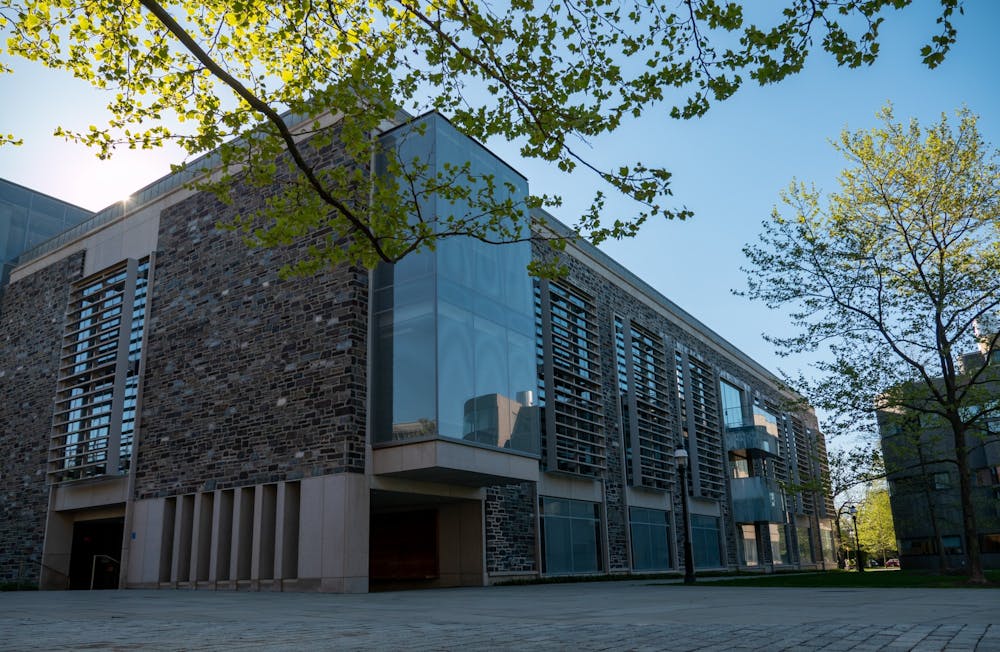“Running an election in Nigeria is no easy matter. [The Independent National Electoral Commission (INEC)], the election management body, had to manage 176,846 polling places, many of them in conflict-affected areas,” professor of Politics and International Affairs Jennifer Widner, who teaches a course titled POL 366: Politics in Africa, told The Daily Princetonian.
Widner was speaking about Nigeria’s Feb. 25 election, in which the ruling All Progressives Congress party’s nominee Bola Tinubu won the country’s presidential election over 17 other candidates, including Atiku Abubakar of the main opposition Peoples Democratic Party (PDP) and Peter Obi of the smaller Labour Party (LP), who received a large amount of support from younger voters.
Although Tinubu was victorious with 36.6 percent of the vote, the election was a reminder that the electoral process in Nigeria has been under scrutiny for allegations of widespread electoral malpractice.
At the time of the most recent International Students by Country & Level of Study report published by the Davis International Center in 2019-20, Princeton hosted nine Nigerian international students, including undergraduates, graduate students, Visiting Student Research Collaborators, and students on Optional Practical Training (OPT) visas.
While 2024 is expected to be a year of elections worldwide, with major elections in the United States, United Kingdom, India, and the European Union, there are a number of elections held around the world in 2023 as well.
Young Nigerian students at Princeton and other universities abroad, however, cannot easily participate in their home country’s elections; despite ongoing discussions around implementing diaspora voting in Nigeria, a court ruled on Feb. 15, ten days before the election, that only Nigerians residing in-country could vote.
Among other major global elections this year, many will allow for overseas voting, including Turkey, Argentina, Bangladesh, and Poland. Princeton had 53, 9, 12, and 8 international students from each country in 2019-20, respectively.
Like non-resident Nigerians, Pakistani citizens living abroad will also be unable to vote in this year’s crucial election; Princeton hosted 22 international students from Pakistan in 2019-20.

In reference to the Nigerian election, Widner mentioned that the new commission leaders heading INEC had made additional reforms to improve the validity of the election, but come election day had encountered issues amidst outside electoral campaign violations committed by political parties.
“There were a number of glitches, including delayed opening times, some technology problems, and a cumbersome registration process. That said, the parties bear much of the responsibility for violence, sowing confusion, and vote-buying, all of which they had agreed not to do.”
The conflict-affected areas referenced by Widner are places identified by the presence of risks of harm to people, which can include areas of “political instability or repression, institutional weakness, insecurity, collapse of civil infrastructure, and widespread violence,” as defined by the Organisation for Economic Co-operation and Development (OECD).
The presence of insecurity and poor infrastructure were two of many issues impacting Nigerian voters this election.

Chika Okeke-Agulu, Director of the Program in African Studies, said in a message to the ‘Prince’ that these problems are a result of government corruption, and that desire for a credible leader to combat official corruption helped pave the way for third-party candidate Peter Obi to have a better chance at winning the presidency.
“Much of Nigeria’s enduring problems such as insecurity, poor infrastructure, etc. are caused by a political elite mired in corruption. It is the yearning for a leader with the credibility to fight official corruption that has made Peter Obi the biggest surprise of this year’s election,” Okeke-Anuglu said.
Emmanuela Omole ’26, who left Nigeria in 2014 to come to the United States, also highlighted government corruption as a driving force for voters.
“Nigeria is a country that has an abundance of natural resources,” she said. “However, for many years, government corruption has hindered the country from improving.”
Omole also spoke about the power of youth in making change within society.
“In recent years there has been a mobilization of the youth in political participation and discourse. This is best exemplified by the EndSARS movement where youth protested and spoke up about the injustice.”
The EndSARS protests, which took place in Nigeria in October 2020, drew international attention to police brutality committed by Nigerian police unit Special Anti-Robbery Squad (SARS) against Nigerian citizens.
“The younger generation is starting to break away from the notion that they have to wait until they can implement change. As a result, they are becoming more involved,” Omole said.
With the large number of young voters came the creation of a major voting bloc, which propelled Peter Obi to the top of the polls and helped him receive the most votes in Lagos State, which houses Africa’s biggest city.
Tetsekela Anyiam-Osigwe, a Ph.D candidate in Princeton’s Politics Department, said in a message to the ‘Prince’ that in Obi, “young people saw someone that they could get behind.”
Anyiam-Osigwe said that though Obi was a third party candidate, he was not a stranger to Nigerian politics, and his clean record helped him as a candidate and the Labour Party as a whole.
“[The election] was a test to see if the Labour Party could transform itself from what many thought was a social [media] movement to a viable third political force in national and local politics,” Anyiam-Osigwe said.
Nanya Offor ’26 shared a similar sentiment, writing in a message to the ‘Prince’ that Obi’s track record and his “credible” candidacy provided an opportunity for Nigerians to break away from “Tinubu and Atiku as reflections of the country’s past.”
“If this election showed anything, it’s that the youth of Nigeria are a force to be reckoned with,” Offor said.
Justus Wilhoit is an Assistant News Editor for the ‘Prince.’
Associate News Editor Annie Rupertus contributed reporting.
Please send any corrections to corrections[at]dailyprincetonian.com.








